Musical Soundtrack to Help Calm Your Horse During Stressful Fourth of July Holiday
July 4, 2023 Comments Off on Musical Soundtrack to Help Calm Your Horse During Stressful Fourth of July Holiday
Boehringer Ingelheim – June 2021 Boehringer Ingelheim is focused on helping keep horses safe and “sound” when it comes to stress with the release of a music track specially designed to help reduce stress in horses. Research shows stress can quickly turn into equine gastric ulcer syndrome (EGUS), with one study showing horses can develop […]
Continue reading …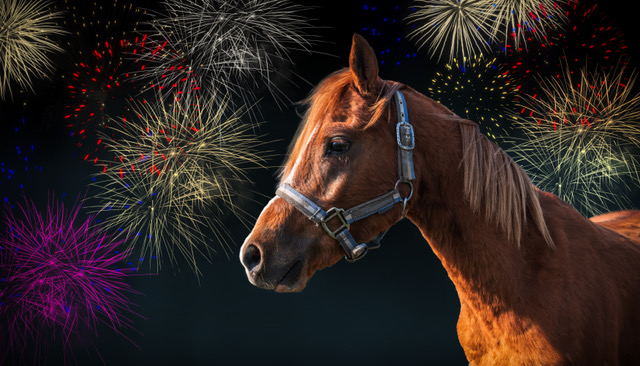
By Brian S. Burks, DVM, Diplomate, ABVP, Board Certified in Equine Practice Fox Run Equine Center Horses are fight or flight creatures; when scared they most often try to get away from the source of fear. Fourth of July fireworks can be loud and bright, causing a fear reaction in some horses. For these horses, finding […]
Continue reading …Tips for Horse Owners to Prepare for Hurricanes
June 24, 2023 Comments Off on Tips for Horse Owners to Prepare for Hurricanes
LSU School of Veterinary Medicine BATON ROUGE, LA—With hurricane season upon us, horse owners should take proactive measures to ensure the safety and well-being of their animals. Here are some tips from the Louisiana State Animal Response Team (LSART – lsart.org), the Louisiana Department of Agriculture and Forestry (ldaf.state.la.us), and the LSU School of Veterinary Medicine […]
Continue reading …Rehabilitation for Tendon Injuries in Horses: Stem Cells Useful
June 21, 2023 Comments Off on Rehabilitation for Tendon Injuries in Horses: Stem Cells Useful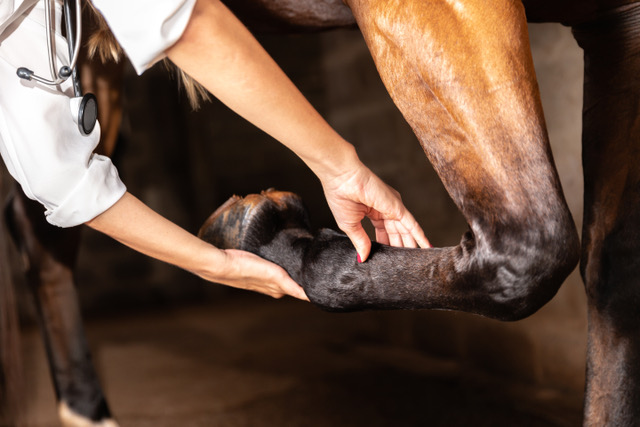
By Kentucky Equine Research Staff, KER March 27, 2023 Although the best way to manage injuries to the superficial digital flexor tendon (SDFT) remains to be established, progress is being made on that front. A recent study shows that a single injection of bone marrow-derived cultures stem cells (BM-MSCs) into an injured SDFT followed by a controlled exercise rehabilitation […]
Continue reading …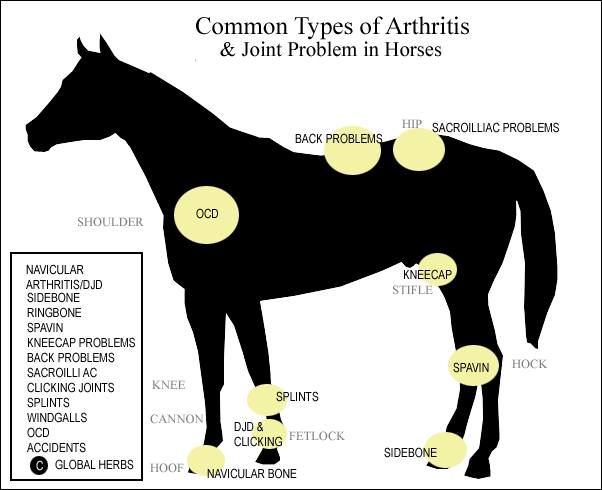
By Brian S. Burks, DVM Diplomate, ABVP Board Certified in Equine Practice Fox Run Equine Center Arthritis is joint inflammation. Breaking its roots, arthro- refers to the joint, while -itis means inflammation. Horses can get different types of arthritis, including osteoarthritis (osteo- refers to bone) and septic arthritis. Osteo arthritis is a chronic, progressive, painful […]
Continue reading …Horses at Arlington National Cemetery Will Be Suspended for a Year for Rehab
June 9, 2023 Comments Off on Horses at Arlington National Cemetery Will Be Suspended for a Year for Rehab
BY ELEANOR WATSON, CBS News The Army is extending the suspension of horses leading caissons during funerals at Arlington National Cemetery through June 2024 due to their health. The initial pause, which began in May, for the caisson platoon was scheduled to last 45 days. But during that time, veterinarians recommended significantly extending the pause to a […]
Continue reading …New FDA Animal Antibiotic Guidelines Go into Effect June 11, 2023
June 7, 2023 Comments Off on New FDA Animal Antibiotic Guidelines Go into Effect June 11, 2023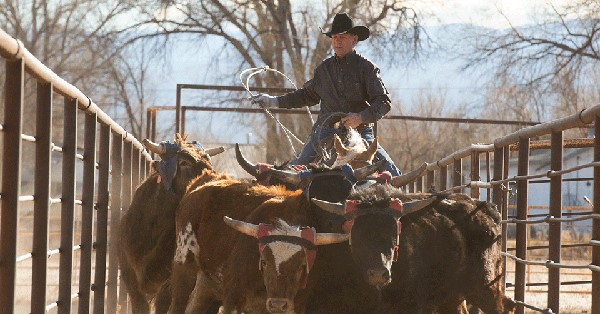
By Jessica Hein, PHJ News New animal antibiotic access guidelines go into effect June 11, 2023, and will require a veterinarian prescription for purchase. That means several antibiotics currently commonplace among farmers and ranchers—especially for cattle producers—will no longer be available for over-the-counter sales. Some of the affected antibiotics include penicillin, tetracycline, sulfadimethoxine and sulfamethazine, cephapirin and […]
Continue reading …Is It Possible to Breed Less “Spooky” Horses?
June 2, 2023 Comments Off on Is It Possible to Breed Less “Spooky” Horses?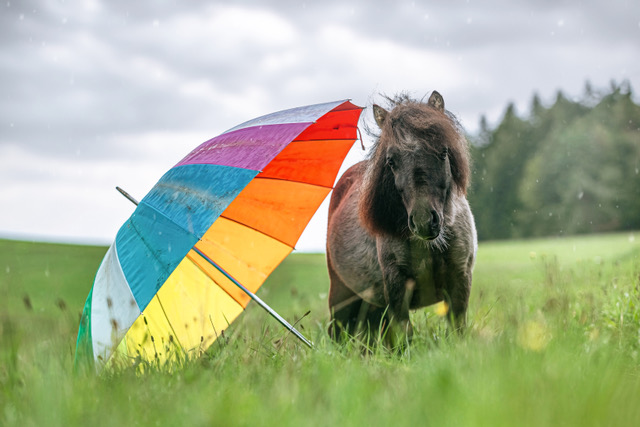
Equine Science Update Wild horses possess an instinct to stay vigilant, constantly on guard against potential predators. This innate behaviour remains ingrained even in domesticated horses, causing them to be easily frightened and alert to potential dangers. Horses often struggle to differentiate between genuine threats and harmless objects, such as a plastic bag floating past a […]
Continue reading …Colic Research: Colonic Microchip Trackers in Horses
May 26, 2023 Comments Off on Colic Research: Colonic Microchip Trackers in Horses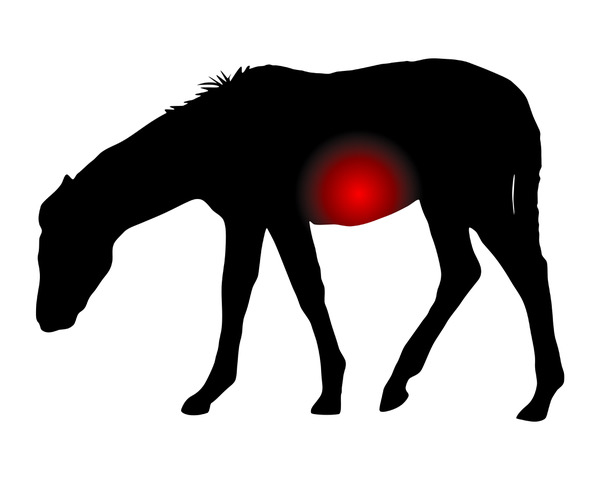
Kentucky Equine Research By surgically implanting microchips in the large colon of a horse, researchers gathered information about the secret life of this organ, including its role in colic, leading them to contemplate studies aimed at colic prevention.* Currently, mechanisms and risk factors contributing to colic, such as large intestinal displacements, impactions, torsions, and entrapments, […]
Continue reading …Horse Show End-of-Day Care Routines
May 25, 2023 Comments Off on Horse Show End-of-Day Care Routines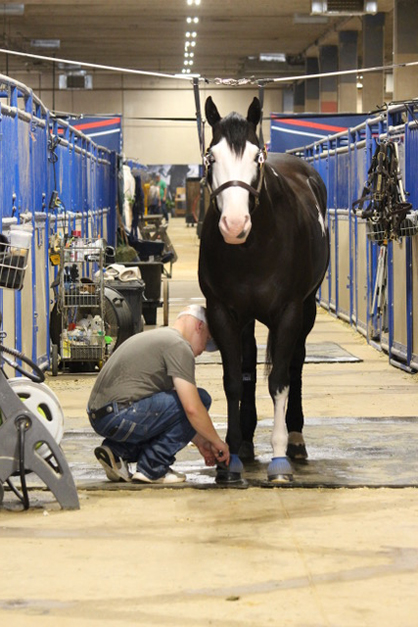
EC Question of the Week: We recently asked our readers to tell us what their after-care routines are at the end of a show day – especially at longer circuits. As always, we can depend on our readers for an abundance of knowledge and ideas! Read on to see what they do: Ellexxah Maxwell […]
Continue reading …







